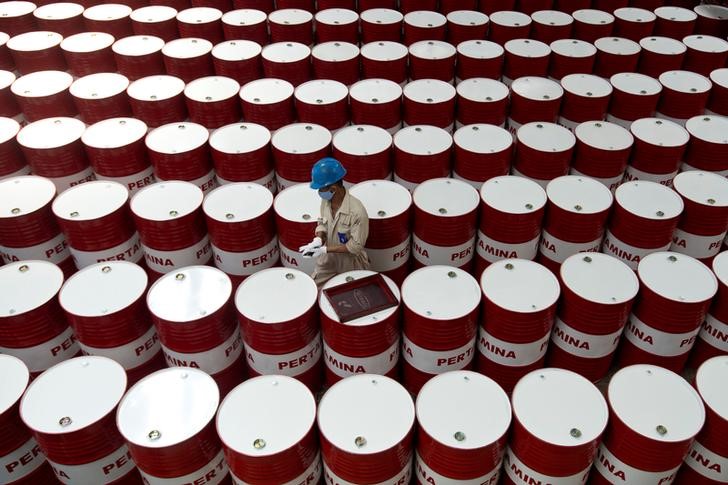Oil prices settle higher as stronger US economic data boosts demand hopes
Oil prices settled higher Thursday after cutting intraday losses after stronger U.S. economy data helped improve sentiment on crude demand just as China oil imports fell.
At 14:30 ET (18:30 GMT), West Texas Intermediate crude futures expiring in September rose 0.7% to $82.11 a barrel, while Brent oil futures gained 0.5% to $82.11 a barrel. US GDP, PCE inflation in spotlight
U.S. gross domestic product data showed that the country's economy grew an annualized 2.8% in the second quarter, an improvement from the 1.4% growth seen in the first quarter, and above expectations for 2%.
The signs of ongoing economic momentum come just ahead of Fed meeting next week, where the central bank is widely expected to keep rates unchanged.
Expectations, however, are growing that the Fed may signal that a September rate cut is on the horizon.
Economic strength suggest that domestic oil demand is likely to remain intact at a time when Chinese demand is waning.
The pick in seasonal U.S. demand was reflected somewhat in the weekly crude inventory data released Wednesday showing a larger-than-expected draw in said U.S. crude inventories.
Still, "it appears speculators continue to lean bearish oil markets into quarter-end (barring a weather or supply shock)," Citi said in a recent note. China demand remains a point of concern
Chinese demand remained in play, after the world’s biggest oil importer reported disappointing growth figures for the second quarter. China’s oil imports also sank in June.
The readings, coupled with scant cues on more stimulus measures from Beijing, kept sentiment over China largely constrained.
An unexpected interest rate cut by the People’s Bank did little to improve sentiment.
Uncertainty over the U.S. presidential race also dented sentiment towards China, amid doubts over just what a change in U.S. administration will entail for Washington’s stance towards Beijing.
Additionally, data out of Europe showed that companies in the eurozone's two largest economies are growing more pessimistic, raising concerns over the bloc's already sluggish recovery.
The business climate in France and Germany unexpectedly worsened in July and entrepreneurs took a dimmer view of the coming months, the national polls showed, a day after a separate survey pointed to stalling growth in the euro area.
(Peter Nurse, Ambar Warrick contributed to this article.)
Source: Investing.com
